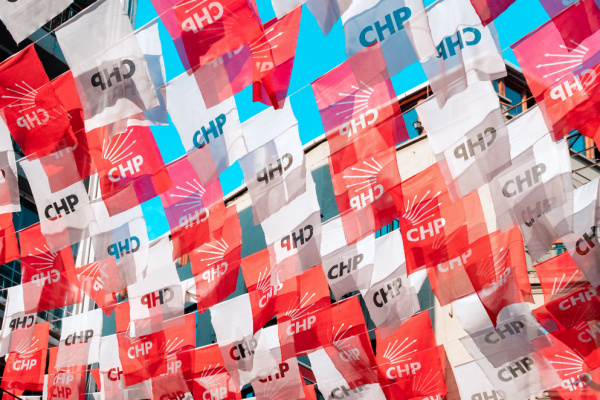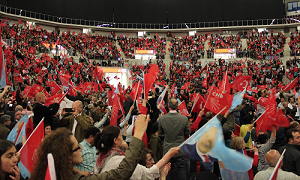Can the New CHP Leader Revive Social Democracy in Turkey?
By Halil Karaveli
January 25, 2024
Turkey’s new opposition leader Özgür Özel is proposing to do something that no one has attempted in Turkey since the early 1990s, to revive a social democratic alternative. Yet the CHP’s new leader is making a turn to the left under inauspicious circumstances. The right in its different shades is hegemonic and there is no societal clamor for social justice and equality. Meanwhile, the Turkish labor movement has been reduced to insignificance, depriving social democracy of a base of working class militancy. Yet rampant inequality needs to be addressed, and a left-wing message that addresses economic concerns can help transcend Turkey’s crippling ethnic divisions, encouraging Turkish and Kurdish lower classes to make common cause. It offers a way out of Turkey’s democratic impasse.

Walking for Justice: The Path Forward for Turkey’s Opposition
by Halil Karaveli
June 22, 2017
With his call for justice, which is a concept and a call that resonates among vast swathes of the population, CHP leader Kemal Kılıçdaroğlu has positioned himself as the tribune of all those – the victims themselves and their families – who have suffered from the successive purges of the AKP regime. Although his call for “justice for all” suffers from a lack of credibility, since it does not include the Kurds, it may nonetheless prove to be the potentially most effective weapon so far against President Recep Tayyip Erdoğan’s authoritarianism.

Başlangıç: The military ordered CHP leader Kılıçdaroğlu to support Erdogan
Celal Başlangıç in Haberdar notes that AKP is taking action in parliament to strip especially the HDP parliamentarians of their immunity. CHP leader Kemal Kılıçdaroğlu has said that the move “is against the constitution, but we are nonetheless going to vote in favor of removing the immunity.” Everyone in the party was surprised, even shocked, including some of those who are very close to the CHP leader. Why had Kılıçdaroğlu – who until now had accused President Erdoğan of violating the constitution – decided to be party to this crime? In CHP circles, four answers are suggested to this question: one is that the CHP leader feared that the AKP was going to accuse him of helping “PKK deputies.” Second, he was afraid that the neo-nationalists within CHP would have rebelled otherwise. Third, Kılıçdaroğlu’s own identity – he is Alevi and Kurd – played a role. But the explanation that is mostly discussed is that Kılıçdaroğlu decided to say “yes” after a briefing he received at the General staff. People in the party are saying that Kılıçdaroğlu knew very well – after a meeting earlier during the day with the central committee of the party – that the general tendency was in favor of saying “no” to the AKP’s motion, but that the briefing he was given at the General staff later during the day led was decisive, explaining why he went on television in the evening to tell that CHP was going to vote “yes.”



